This article was co-authored by Hilary Jacobs Hendel, LCSW. Hilary Jacobs Hendel is a Certified Accelerated Experiential Dynamic Psychotherapy (AEDP) Psychotherapist and Emotions Educator (Accelerated Experiential Dynamic Psychotherapy based in New York City. With almost 20 years of experience, she specializes in helping people understand emotions and how they affect the mind through The Change Triangle tool. Hilary is also the author of It’s Not Always Depression: Working the Change Triangle to Listen to the Body, Discover Core Emotions, and Connect to Your Authentic Self, which was the winner of the 2018 Best Book Award in the Mental Health/Psychology Category and the 2018 Silver Nautilus Award for Personal Growth (Large Publisher). Hilary has published articles in The New York Times, TIME magazine, Oprah.com, NBC Think, Salon.com, and Fox News. She was also the psychological consultant on AMC’s Mad Men. Hilary is also the co-developer of the Emotions Education 101Turnkey Curriculum. She holds a BA in Biochemistry from Wesleyan University and a Master’s in Social Work from Fordham University.
There are 20 references cited in this article, which can be found at the bottom of the page.
wikiHow marks an article as reader-approved once it receives enough positive feedback. In this case, several readers have written to tell us that this article was helpful to them, earning it our reader-approved status.
This article has been viewed 122,255 times.
Gaming is a much broader and more accessible hobby than it was ten years ago. Despite what a small minority of gamers would have you believe, you don't need to prove your skills or join a clique to call yourself a gamer. Just like books or films, there's a game out there for everybody.
Steps
Finding Games You Enjoy
-
1Decide what to play games on. When you're just starting out, it's best to stick with what you have available. Purchasing a console or upgrading your computer is a big expense, and it's best to get some experience under your belt so you know how to make the right decision. If you can, play some games on a friend's platform before you make the decision yourself.[1]
- A computer (PC) can play a wide variety of games, but playing the latest and fanciest requires expensive hardware upgrades. Desktops are much better for gaming than laptops.[2]
- A console (typically an Xbox, PlayStation, Wii/Wii U or Nintendo Switch) is a cheaper option if you don't already have a computer, and requires no technical know-how at all to use. You'll have a much more limited selection of games, and every few years you'll need to buy the next generation console if you want to play new games.
- If you have neither of the above, you can play on a smart phone, tablet, or portable gaming device, or you can play real-world games described at the end of this section.
-
2Know how to find games. There are many recommended games below, organized by the type of person they appeal to. You probably already have a good idea what sort of experience you like, even if you're not much of a gamer yet, so skim through and start with the recommendation that sounds most appealing to you. A quick online search will often lead you to the developer's website where you can download or order the game, and where you can find out which devices the game can be played on. If you're not sure whether to buy it, search for a demo or a YouTube play through to find out more.[3]
- For computer games, download the free software Steam. This is a hugely popular place to buy games, and the constant discount deals and community discussions are a great way to find new recommendations as well.
- Most of the recommendations below were released in the last few years, and may still be available at brick-and-mortar game shops.
Advertisement -
3Browse casual games. These are great for passing the time or taking your mind off stress, and are typically easy to learn.[4] This category is loosely defined, and sometimes insulted by people who consider themselves "real gamers." However, that attitude is becoming less common. Try looking in the following places if you've never played a game all the way through before, or if you're not sure what appeals to you:
- For a huge variety of options, try a mobile app store, or a large game collection website like Kongregate and Armor Games.
- Most Nintendo games are designed to focus on fun and enjoying yourself with friends, including Mario Kart, Wii Sports, or Mario Party.
-
4Try games that require reflexes and precision. If you enjoy fast finger movements and fast-paced challenges, there are many game genres you might enjoy:
- Platformers involve navigating an obstacle course of blocks and enemies. Play the classic Super Mario, challenge yourself with Super Meat Boy, or add story and fighting with the Ratchet & Clank series.
- For pure, fast-paced finger-tapping, try a rhythm game like Dance Dance Revolution or its keyboard version Step Mania, or a shoot 'em up ("shmup") like Ikaruga or Radiant Silvergun.
- Sports games are typically re-released each year so you can play as famous athletes. Pick your favorite sport and you can probably find a video game version, such as Madden or FIFA.
- Fighting games like Super Smash Bros. or Guilty Gear are competitive games that reward reflexes and muscle memory.
-
5Explore sandbox games. Just like a real sandbox, these games give you tools you can use to create your own fun, or even your own world. If you're good at setting your own goals and getting pulled into your own project, these could be for you.[5]
- Minecraft is by far the most popular of these games. If you're looking for something with less blocky graphics, try Spore.
- Sandbox games don't have to be "casual." Dwarf Fortress has sent thousands of "hardcore gamers" running due to its incredibly complex world, displayed entirely in text.
-
6Play for thrills. Dim the lights and get ready for your adrenaline rush. These games are for people who want maximum excitement:[6]
- If you love action or adventure stories, play the hero in games like Prince of Persia or Assassin's Creed, or the famous (and family-friendly) Legend of Zelda game.
- If you enjoy horror films, find out what it's like to be in one with Silent Hill or Resident Evil.
- When you just need to let it all out, pick up Saint's Row or Grand Theft Auto and embark on a ridiculous crime spree.
-
7Play an immersive role-playing game. Games can immerse you in a story in a way that no other art form can. Role-playing games (RPGs) are a popular example, although the genre is extremely broad.[7] Here are a few famous examples, any one of which can provide dozens of hours of gameplay:[8]
- A few of the most famous RPG series that focus on story and player choice include Dragon Age, Mass Effect, and Final Fantasy.
- Unusual, strange settings are shown off in the Bioshock and Dark Souls series, while the Elder Scrolls series gives you an enormous, classic fantasy world to explore.
- On the extreme end of the scale, games that have incredibly in-depth stories include Planescape: Torment, and every game from Spiderweb Software.
-
8Play competitive multiplayer games. Many games have the option to play competitively, but some of them are dedicated to testing skill as much as possible. The following genres have so much complexity that many gamers choose one and play it almost exclusively, training to become better over dozens or hundreds of hours:[9]
- First-person shooters (FPS's) are mostly known for their online multiplayer modes, in which players compete as enemy soldiers fighting in a complex environment. Call of Duty and Battlefield are good introductions to the genre.
- Multi-player online battle arenas (MOBAs) are team-versus-team games, usually with a fantasy theme. Compares to FPS's, overall strategy is more important and short-term reflexes and tactics somewhat less so. Try Defense of the Ancients (DoTA) and League of Legends (LoL).
- Real time strategy games (RTS's) involve clashing civilizations, building cities and armies and waging all-out war with your opponents. Starcraft is focused on extremely rapid decision-making, while the Total War series is on the other side of the spectrum, emphasizing long-term strategy and careful tactical planning.
- Massively multiplayer role-playing games (MMORPGs or MMOs) have you play with hundreds of other players. You've likely heard of World of Warcraft, but also consider Star Wars: The Old Republic or Guild Wars 2.
-
9Play without a computer or console. Not every gamer plays video games. While most mass-market board games don't develop a following in gamer circles, there are exceptions. Some of these even have major tournaments with cash prizes:
- Famous, deeply strategic board games such as Settlers of Catan or Dominion are easy enough to play with non-gamer friends, but can require hundreds of hours to master.
- Tabletop role-playing games such as Dungeons and Dragons or Pathfinder let you tell a story with your friends.[10]
- Collectible card games (CCGs or TCGs) such as Magic: the Gathering or Yu-Gi-Oh! let you combine hundreds of pieces to let you play the style of game you most enjoy.[11] These tend to be more expensive compared to other gaming hobbies, but your local game store may run cheap events for new players.
Understanding Gamer Culture
-
1Expect strong opinions. Most self-identified gamers have strong opinions about their favorite games, and are willing to talk and argue about them for hours. This passion sometimes causes "gate-keeping" from a fan who suspects you don't match his idea of a "real" gamer. This can be tiresome, but it will happen less and less as you develop friends in the gaming world, and they see you playing games and talking about them.
-
2Show good sportsmanship. You won't always receive it yourself, but the mature players will respect you for keeping the atmosphere friendly. At the end of a game against a stranger, tell your opponent "good game" or "gg," and offer a handshake if playing in person. When playing a team game, don't criticize a player who's not doing well, unless he's actively sabotaging your effort.
- Against your friends, light-hearted boasting and insults is usually expected, not handshakes and formality. If anyone gets angry, take a break so he can cool down.
-
3Deal with bad behavior. As gaming has become mainstream, many communities have grown more diverse and welcoming, but there's also been backlash from sexists and people who consider themselves "true gamers." Light jabs and mockery are best ignored, but any actual harassment or bullying should be reported to a moderator (mod) or administrator. Often, you'll find people willing to stand up for a new player if you speak up. If no one does, don't hesitate to find another forum, guild, or even an entirely new game with a better culture.
- Most games have a block or ignore function that prevents a player from contacting you.
-
4Pick up the slang. Each genre and even each game develops its own slang, which can be bewildering for a newcomer. There are a few terms that are used all across gaming, to one degree or another, so use this list as a head start.[12]
- A newbie is a player who's just started playing the game. "Noob" is a somewhat rude synonym.[13]
- Afk means "away from keyboard" — the player is taking a break.
- gg means "good game," something polite to say after the game ends.
- 1337, l33t, or leet all mean "elite," or highly skilled. This is old school slang, now often used as a sarcastic or self-deprecating joke.
- When someone is pwned, they're losing horribly to an opponent.
Improving Your Gaming Skills
-
1Practice against good opponents. Even a fun night of gaming with friends will hone your abilities, but putting in concentrated effort to improve your weak points will lead to faster improvement. The best way to learn, if your pride can stand it, is to play against people who are better than you. Watch what they do, and ask about the reasoning behind their decisions whenever you don't understand.[14]
-
2Improve your reaction time. Playing your favorite games is one of the best ways to improve your skills, but past a certain point it may be helpful to focus on one talent in particular. Regardless of the type of game you're training for, a rhythm game like Step Mania can train your fingers to move fast.[15]
-
3Learn from your mistakes. An honest understanding of what happened is required if you're going to be competitive. If you always blame luck, a slow internet connection, or other factors beyond you control, you’ll never focus on the things you can improve. If you're too worked up after a game, make a mental note to "replay" it in your head, and think about whether there were any decisions you should have made differently.
- If the game makes you feel frustrated or too agitated, it is better to take a break.
-
4Upgrade your hardware. If you love to play the newest multiplayer game on the best graphics setting, you could be facing $1000 or $2000 in computer upgrades, but that's the extreme case.[16] There are many cheaper accessories that can make gaming life easier, and that's all you should consider if you tend to play older games, games with simple graphics, or games that don't require reflexes.
- A gaming mouse and ergonomic keyboard that comfortably fits your hand is invaluable for many games. If you're playing on a laptop, any external mouse and keyboard at all is better than your track pad and built-in keyboard.
- A headset will let you communicate with allies in multiplayer games, without having to spend time typing.
Making a Living as a Gamer
-
1Pick a popular game. A very small percentage of gamers ever earn money from the hobby, and even fewer earn enough to call it an income. If you're serious about this goal, you'll need to pick a game played by millions of people, preferably with a competitive scene where players can win thousands of dollars in tournaments. Some of these, such as League of Legends, are called "e-sports" because of the serious, international competition.[17]
- Even if you want to make money reviewing games or entertaining fans by recording yourself playing games, you'll still need to focus on new and popular games, especially when you're first starting out, or no one will be interested.
-
2Get a unique name. Choose something memorable and easy to spell. Use this name for all games and game-related work you do. This can even be your real name, as long as you use it consistently enough to gain some recognition. A good example of this is in the anime, Sword Art Online, where the main character, Kirigaya Kazuto, used his name and combined Kiri' from Kirigaya and to from his last name to make Kirito.[18]
-
3Create video content. Find a way to record video or set up a web camera, and show people your gaming or your game reviews on YouTube or Twitch. If you can build up a fan base, you can earn a steadier income through donations or sponsorships than you would earn through tournament prizes.
- Post a link on the game's forums or social media accounts to advertise your channel.
- A few games, such as Magic: the Gathering, also make it possible to earn money through writing strategy articles and publishing them on a website. This is mostly true for collectible card games, since secondary retailers want to attract people to their website to purchase product.
-
4Dedicate plenty of time. If you want to become one of the few people who makes a living off tournament winnings, be prepared to dedicate six hours or more each day to gaming.
Community Q&A
-
QuestionHow do I become famous by gaming?
 Community AnswerYou could enter tournaments and start a YouTube channel where people can watch you game. You'll have to be patient, though. No one gets famous overnight.
Community AnswerYou could enter tournaments and start a YouTube channel where people can watch you game. You'll have to be patient, though. No one gets famous overnight. -
QuestionDo I have to play on PC?
 Belle K.Top AnswererNo, many people play on consoles such as XBOX and Playstation. Some people prefer PC, some prefer console, some like both.
Belle K.Top AnswererNo, many people play on consoles such as XBOX and Playstation. Some people prefer PC, some prefer console, some like both. -
QuestionWhat are some games I can play on the PC?
 Itz_ButterScotchCommunity AnswerYou can play Minecraft, Roblox, Undertale, BATIM (Bendy And The Ink Machine), Doki Doki Literature Club, Among Us, any games on Steam if you are willing to pay for games, and so many others. Roblox and is one of the many most popular games of all time.
Itz_ButterScotchCommunity AnswerYou can play Minecraft, Roblox, Undertale, BATIM (Bendy And The Ink Machine), Doki Doki Literature Club, Among Us, any games on Steam if you are willing to pay for games, and so many others. Roblox and is one of the many most popular games of all time.
Warnings
- Excessive video game playing can cause eye strain which can lead to temporary, but painful, headaches.[19] Take a five minute break now and then, or at least follow the 20/20/20 rule. For every twenty minutes you spend looking at a screen up close spend at least 20 seconds focusing on something at least 20 feet (6.1 m) away.[20]⧼thumbs_response⧽
References
- ↑ https://www.theguardian.com/technology/2015/feb/18/how-do-i-start-playing-video-games-a-beginners-guide
- ↑ https://www.pcgamer.com/laptop-vs-desktop/
- ↑ https://www.npr.org/sections/alltechconsidered/2014/03/30/292437457/getting-back-in-the-game-finding-the-right-game-to-play
- ↑ https://www.computerhope.com/jargon/c/casual-gaming.htm
- ↑ https://www.youtube.com/watch?v=LPbUveI7uDM
- ↑ https://www.pcworld.com/article/2838314/15-terrifying-pc-horror-games-to-play-with-the-lights-off.html#slide1
- ↑ https://medium.com/@SA_Liberty/what-are-role-playing-games-even-how-are-they-that-50071c5552e2
- ↑ https://www.gamesradar.com/best-rpg-games/
- ↑ https://www.pcmag.com/feature/355931/the-best-esports-games-to-light-your-competitive-fire/1
- ↑ http://wheelhouseworkshop.com/2016/04/27/what-exactly-is-a-tabletop-role-playing-game-anyway/
- ↑ https://boardgamegeek.com/boardgamefamily/6040/ccgs-collectible-card-games
- ↑ https://www.gameanax.com/slang-gamers-use/
- ↑ https://www.digitaltrends.com/gaming/noob-newbie-word-origins/
- ↑ https://www.gamecrate.com/how-e-sports-how-train-fighting-games/14711
- ↑ https://gaming.envavo.com/blog/reaction-time-gamers-ultimate-guide/
- ↑ https://www.pcgamer.com/the-easy-pc-upgrade-guide/
- ↑ https://www.esportsearnings.com/players
- ↑ https://gamedevelopment.tutsplus.com/articles/choosing-the-right-name-for-your-game--gamedev-3895
- ↑ https://www.allaboutvision.com/cvs/irritated.htm
- ↑ https://www.pcgamer.com/how-do-you-prevent-eye-strain-while-gaming/


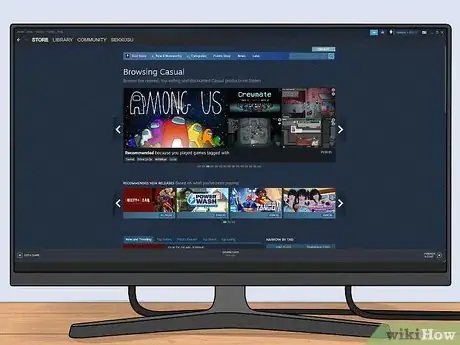
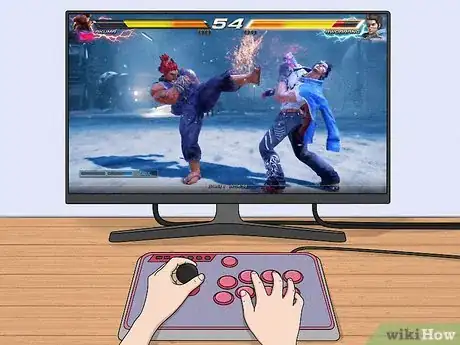
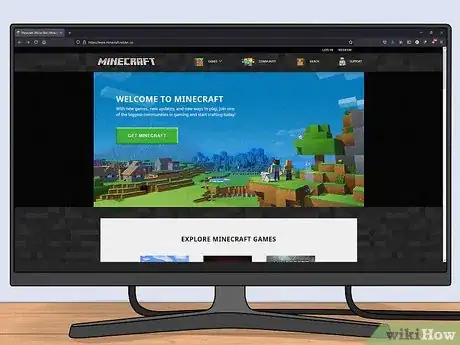

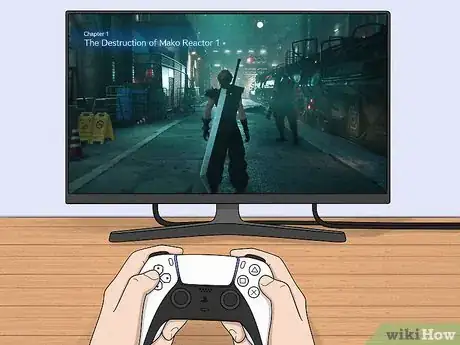








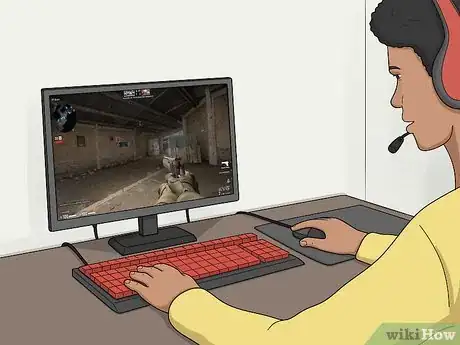
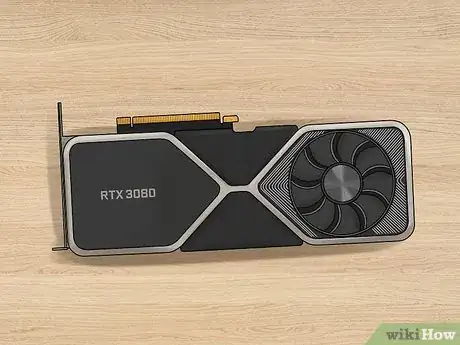


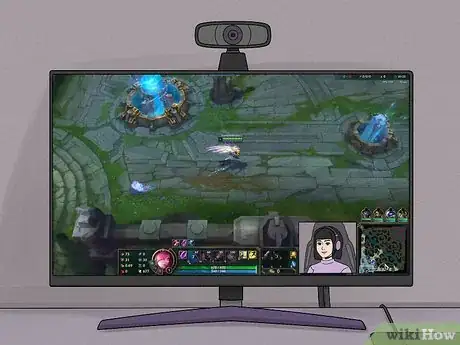






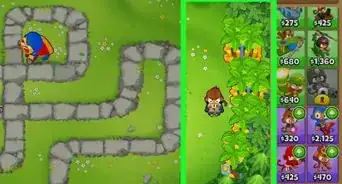





-Step-13.webp)



















































